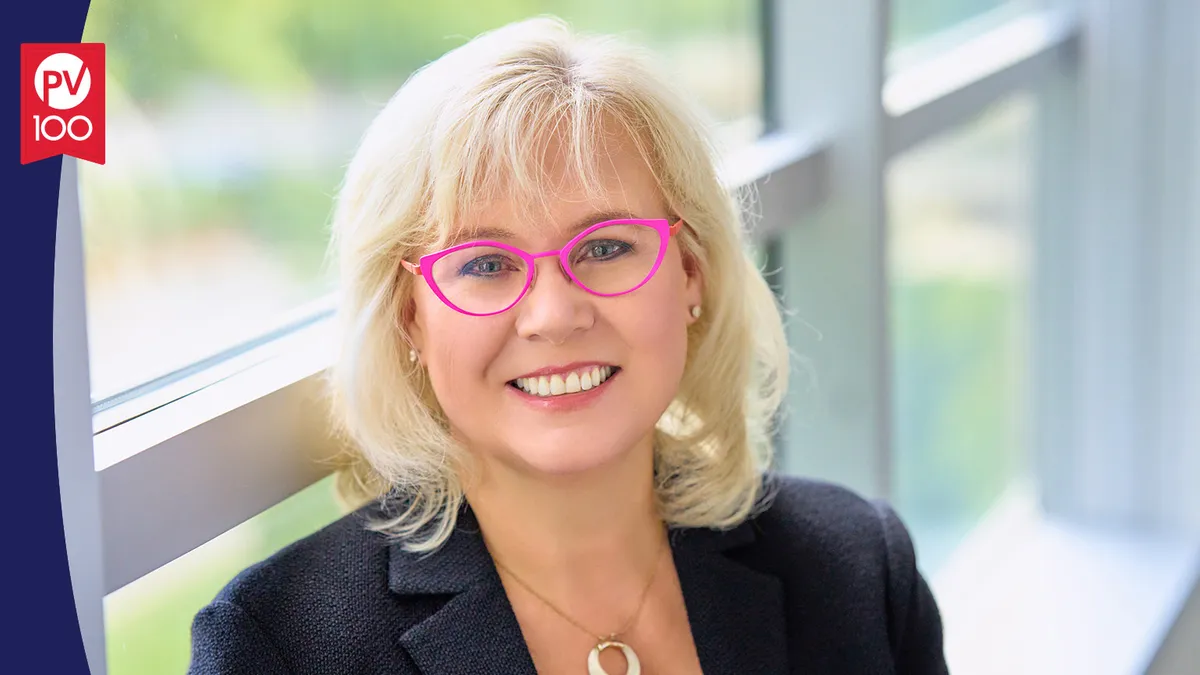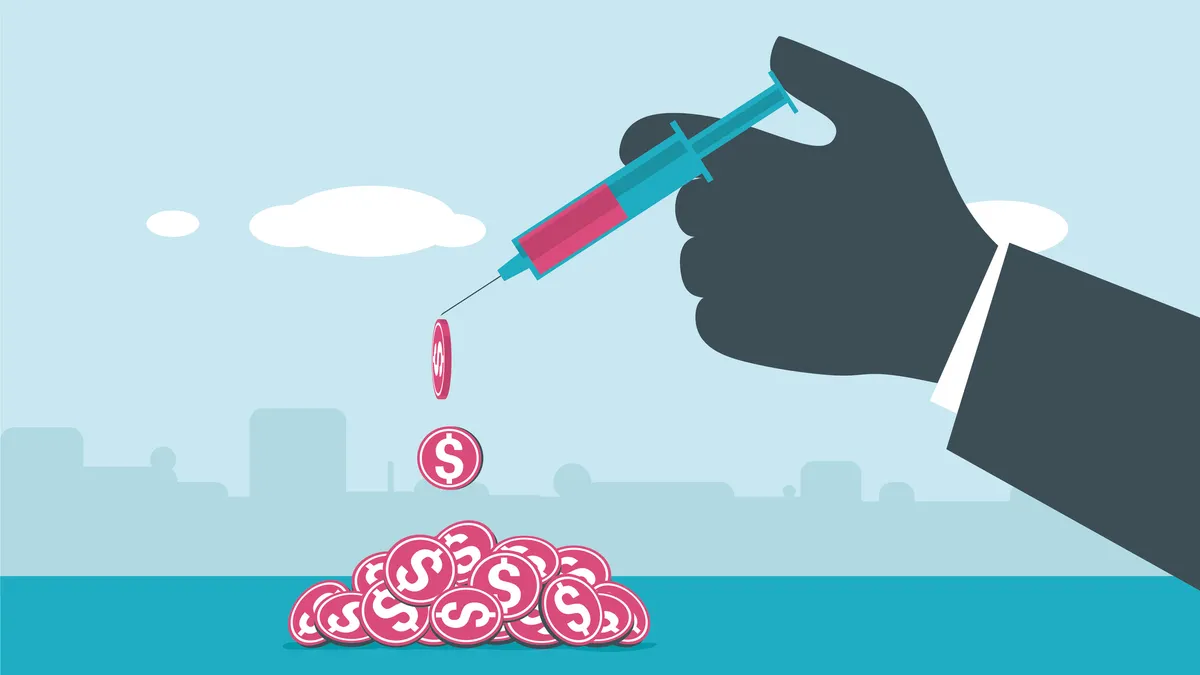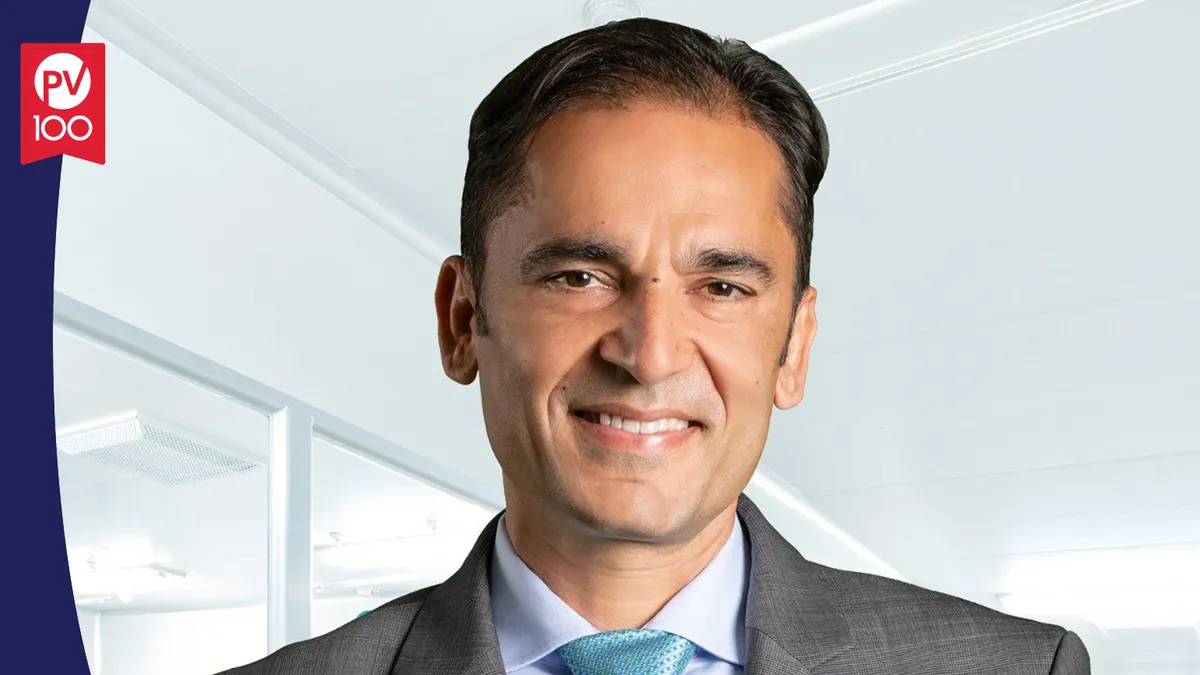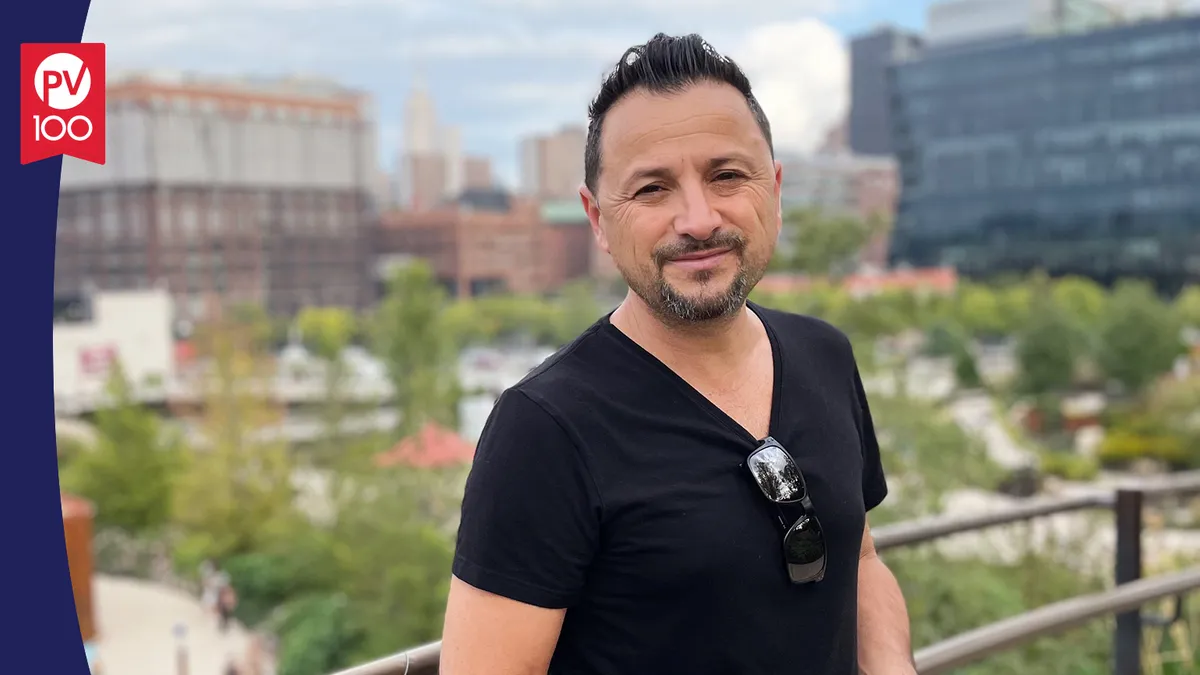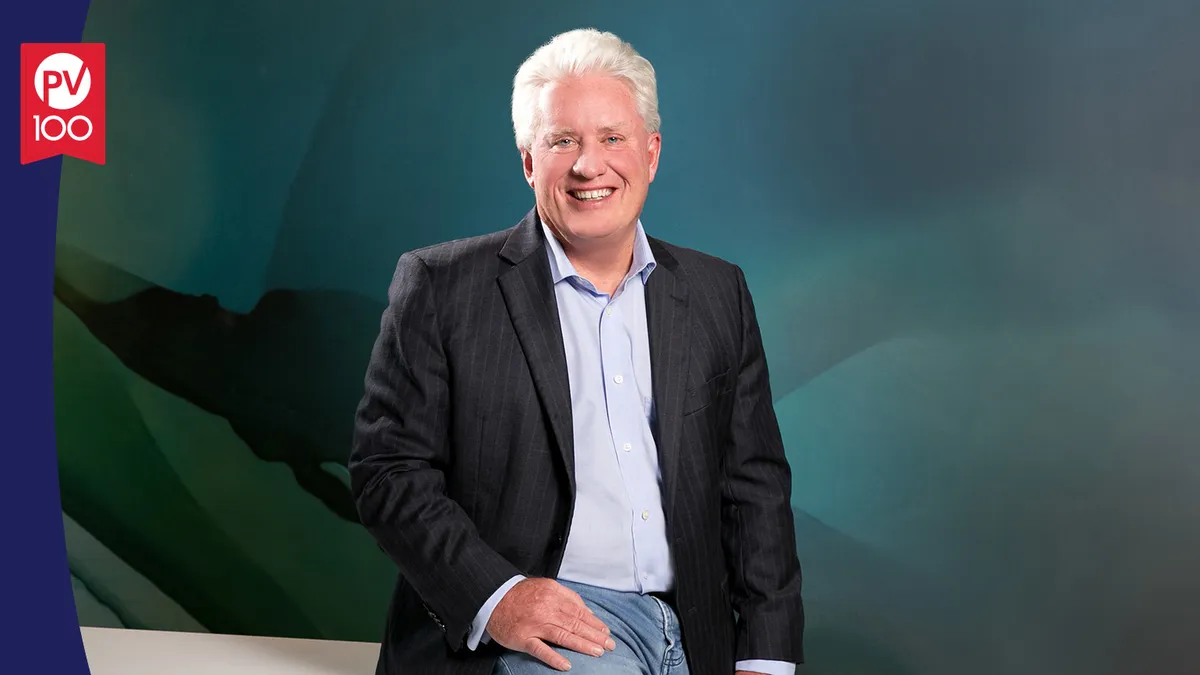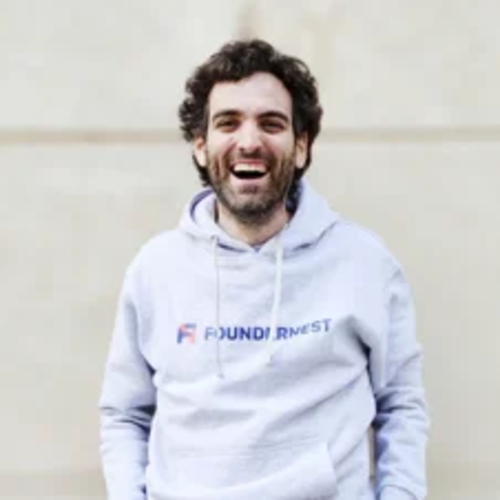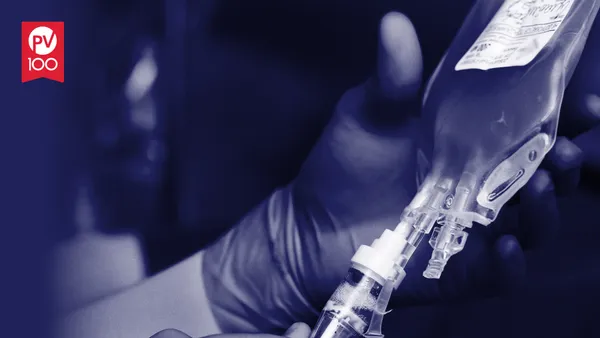Editor’s note: This story is part of our 2022 Red Jacket awards feature.
“Just ask Peyton” has become a familiar refrain across Parexel. Since joining the global clinical research organization four and a half years ago, Peyton Howell has become the go-to resource for team members. While not officially part of her title, she is the chief “connector” for team members — and it’s a role she relishes. Recently promoted to her new role as chief operating and growth officer, Howell is intent on giving colleagues the tools they need to be more effective for patients and customers; her influence is felt across the company’s extensive line of service offerings, which range from all phases of clinical trial design to regulatory and commercial consulting.
“I want to support the team and be able to clear obstacles,” Howell said. “When I came to Parexel, I knew it would be a transformational opportunity. My title and role have evolved as we've executed on our patients-first strategy, and now we are beginning to really see the growth.”
Howell, who has been named a PharmaVoice 100 honoree multiple times, joined Parexel from AmerisourceBergen, where she spent more than 10 years after leaving her role leading The Lash Group, expanding her portfolio of skills, such as overseeing health systems and specialty care solutions, global sourcing, and manufacturing and business development — including a global P&L of more than $150 billion. Her time at AmerisourceBergen was precipitated by the global healthcare and pharma distribution company’s purchase of The Lash Group, which Howell founded in 1991 and grew to be the largest provider of market access services and consulting over the course of 16 years.
In particular, Howell has defined and redefined the concepts around market access and reimbursement over the course of her career. Early on, while working in health administration at academic medical centers, she found her niche and became an expert in understanding the levers that precipitated how hospitals and physicians were paid and how those costs translated to patient care.
“It’s funny how you enter an area that was niche, and now everyone talks about access,” she said. “This has been the consistent thread throughout my career — ensuring patients can gain access to new treatments and advances.”
Even with all of her career wins, Howell derives the greatest satisfaction from helping others succeed in their own professional goals, and is especially focused on improving gender parity and achieving diversity, equity and inclusion goals. Under her stewardship, Parexel was recognized as a 2022 Catalyst award winner for its “Leveraging Gender Partnership to Advance Women in Leadership” initiative that has moved the company’s culture forward in a significant way. Between 2014 and 2021, Parexel’s representation of women globally among senior leadership ranks also got a boost across each job-band level, with increases at the “senior VP level from 13.3% to 38.8% and from 32.3% to 50.3% at the VP level during this timeframe.” In the U.S., representation within Parexel of women of color increased across several job levels, “including an increase from 0% to 10% at the senior VP level and 3.3% to 14.8% at the VP level.” According to the company, its board is “57% women and 29% women of color.”
“For me, driving transformation is about putting the best team together, and then supporting that team through challenges.”
Peyton Howell
Chief operating and growth officer, Parexel
“We are sponsoring a conference at Parexel focused on women of color and how we all — men and women — can be allies and make a difference and that's part of our next step,” Howell said. “Following up on our Catalyst award recognition, I am focused on how can we do more? How can we share what's working for us, get insights from others, and then bring it forward into our community? We have invited our competitors, other local healthcare companies and Healthcare Businesswomen’s Association members to join us as part of the initiative.”
Here, Howell shares why being high energy is a leadership strength, the difference empathy can make to a company’s culture and why her legacy as a leader is grounded in the success of others.
The interview has been edited for style and brevity.
PHARMAVOICE: As a Red Jacket honoree, what do you believe is your greatest leadership strength?
PEYTON HOWELL: I think my greatest leadership strengths are my energy and my passion. They're closely related. I'm beginning to gain a nickname of ‘caffeine.’ Bringing energy to organizations is also about appreciating and delivering empathy to both your colleagues and your customers. And I think that's been my strength that I've leaned into, particularly through the pandemic. It also helps connect all of our science to the patient — so it’s been purposeful energy.
What’s the skill that you had to learn or adapt over the past two years that you're going to take forward?
The skill that really stands out for me, and maybe one of the silver linings to the pandemic, is about empathy and care, and taking that to the next level. I am going to keep that. I have focused much more on this in terms of asking people more personal questions about their families and how things are going — and it's been powerful. I feel closer to many colleagues who I really haven't been with, in some cases at all just because of the nature of a global team and limited travel. It's also allowed me to hold them accountable in a good way, such as taking the vacation they said they would. That little connection really matters because sometimes there's no one else to say it's OK to put the laptop down. We need all of you and we're not going to have all of you if we don't take care of you. And I'm a believer that if we take care of people, they will take care of our customers and our patients.
It's a superpower that we all can avail ourselves of and it is critically important now. In a generation where people have choice where they want to work and the purpose behind where they work is the reason they work — empathy and connections are critically important.
Speaking of work and purpose, have you been subject to the ‘great resignation?’
We have definitely seen the challenges of a labor market that's extremely competitive. We're a majority female organization, which means we've been disproportionately impacted by the challenges of juggling family through a pandemic, and all of healthcare is seeing this explosion. At the same time, we're leading double-digit growth and on top of that is wage inflation and the pressures of all of those things together. We are working on being creative. We've created new training programs to onboard and bring in people with different types of skill sets than we would have considered before. And it's been incredibly successful and very well received by customers, because we leaned into equity and made sure those new leaders have support. And we've been working internally on promotions and making sure that we take care of our own first and that they see career opportunities.
It's tested us as leaders, it's hard to pay attention to all those things at the same time. Across the life sciences, we need to continue to bring in talent right out of college into these fields. We need them. I have a daughter who is in med school, and I keep telling her we need all of you working to spread the word that we're ready for you.
How have your efforts started to pay off?
This may be one of the things I'm most proud of at Parexel is the difference that we have seen in women entering at senior VP levels and up. We won one of the Catalyst Awards this past year. It's an award across all industries so it's obviously a huge deal. We were recognized for our work with men advocating for women's leadership across our organization and the impact that it's made bringing women and women of color into leadership roles. When we shared our statistics, which are publicly available, there was an audible gasp with the progress because it didn't seem possible in just three years. To see the success of the organization because of the results these leaders are delivering is super exciting for me.
What would you like your legacy to be?
My legacy lives in the leaders who I've been able to sponsor and mentor both in this organization and in prior organizations. There is nothing better than seeing your teams excel and thrive in new roles and companies. I've had some people reach out recently who were promoted into new roles, and they said I was the first person they wanted to tell. This makes it all worthwhile to know you've been part of someone's journey, and they are reaching their full potential.
What are some career highlights that have left a lasting impression?
Most people assume my career highlight would be starting a company and selling a company, and obviously I'm extremely proud of that very early work to grow and develop The Lash Group and later sell it to AmerisourceBergen to create the first generation of patient access programs. At the end of the day, I am most proud of what I'm doing right now, because I'm seeing the transformational growth of Parexel. And that's a cultural transformation, as well as a growth in terms of the business itself.
“From a leadership perspective, we all have an obligation to leave every role, every team stronger than we found it. At the end of the day, people will remember how you made them feel.”
Peyton Howell
Chief operating and growth officer, Parexel
I don’t think I fully understood the power of culture. And through this pandemic, our culture has accelerated our growth and allowed us to thrive during a time of challenge — being able to make that connection to culture and patients has been fundamental to our success.
The pandemic also put decentralized clinical trials (DCTs) front and center. Are DCTs sustainable going forward?
I think DCTs are part of our new normal. But I do think it's more of a hybrid approach. What we've learned is that we need to have protocols that allow for optionality and flexibility because different patients want different things. We've heard loud and clear from our patient advisory groups that many patients do not want home care. They prefer to go somewhere, but they want to be close to home. So, we have to keep pushing ourselves for more optionality and more flexibility. This is critical because the burden on patients in clinical research is one of the reasons we don't have diversity in clinical research. We need to keep pushing the needle. For example, community care is part of the reason I'm at Parexel. I believe site of care options are critical and we've only scratched the surface on what we can do there.
You've been described as a transformational leader. Would you agree with that assessment?
I aspire to be a transformational leader, and I do enjoy transformation. I enjoy cultural development and change and growth. For me, driving transformation is about putting the best team together, and then supporting that team through challenges. I'm really lucky to be in a role where I get to work with such talented teams.
What is your hope for clinical trials in the future?
I have been thinking about this one recently. There is a struggle with clinical research, is this a clinical trial that you would recommend for your loved one? I aspire to a day when most clinical trials don't need a placebo control arm, when they are the standard of care and we are effectively using real-world data and that regulatory agencies are supporting us in the journey. I think we're going to have to continue to push. I know that's difficult. For regulatory agencies, this is a challenge and an area of strength. For us at Parexel, in terms of our regulatory consulting team, I think we're going to have to continue to push for change because it will accelerate innovation. This will also allow clinical research to move much more quickly.
Right now, there's a crisis for patient enrollment into many clinical trials, especially in areas like cancer care. Patients don't know if they are going to be getting a treatment regimen that is better than the standard of care or not. And that's a very big ask. The way we can improve this is through patient-centered clinical research and clinical research as a care option. And if we keep pushing in our large clinical trials we should be able to get there soon.
What is your key piece of leadership advice that you give to folks?
I have a few. The first one, especially when I'm talking with newer emerging leaders, is the concept of performance capital. You don't have to own a P&L to have performance capital. You can set metrics for yourself, communicate those metrics and how they deliver value — now you are the owner of your own P&L no matter what your role is in a company. That performance capital then gives you the ability to ask for that big job, the stretch assignment or pay increase.
From a leadership perspective, I believe firmly that we all have an obligation to leave every role, every team stronger than we found it. At the end of the day, people will remember how you made them feel. And to that point, we need to bring our full self and our full energy. This is a matter of respect — respect for the job, respect for what we're doing as a company, respect for the patient. It may vary by day, but I'm going to give it my very best.
See our full list of 2022 PharmaVoice 100 winners.


